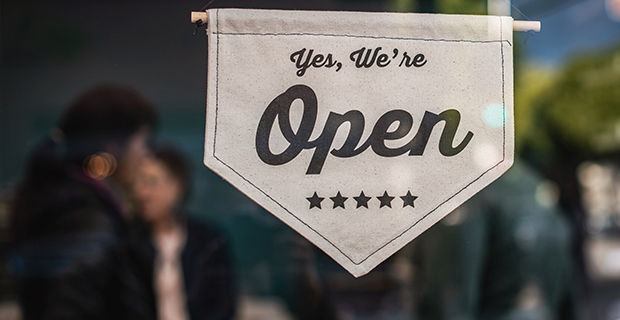
When I walked into the Senate office buildings in Washington, D.C. last week, I was acutely aware of how far I was from the warmth of my studio and the familiar hum of the kiln.
I had come to represent Arizona’s creative and small business community — not just to speak for myself, but for the countless artists, educators, and entrepreneurs working behind the scenes to build something meaningful in a world that often makes it harder than it should be.
My name is Warren Norgaard. I run Milkweed Arts, a Phoenix-based glass art education center, and Unique Glass Colors, a manufacturer of glass enamels used by artists around the world. Alongside a delegation of small business leaders from Arizona, I traveled to D.C. to meet with our senators — Mark Kelly and Ruben Gallego — and share a firsthand account of what small businesses need most in 2025.
The focus of our meetings was threefold: access to artificial intelligence, a fair federal minimum wage, and the growing impact of tariffs on small domestic manufacturers. These aren’t abstract issues. They’re daily realities for businesses like mine, and I believe it’s vital that lawmakers hear about them directly from those living them.
Artificial intelligence has been a game-changer for my business — but not in the way most headlines suggest. I’m not replacing people with robots. I’m using AI tools to make the work I do as a business owner more sustainable. I rely on it to streamline repetitive tasks, write marketing content, produce accessible educational materials, and create visual mockups. I don’t have a marketing department. I don’t have a tech team. I have AI — and it’s helping me stay competitive, creative, and responsive in a market dominated by larger companies.
I shared with both senators how critical it is that small businesses retain affordable, transparent access to these tools. Without them, the gap between us and big corporations will only widen.
In the same conversations, I also voiced my support for raising the federal minimum wage. It’s a topic often met with controversy, but to me, it’s simple: businesses that rely on poverty-level wages to stay afloat aren’t operating sustainably. Fair pay isn’t just a moral issue — it’s a practical one. When people are paid well, they stay longer, perform better, and spend money in their local communities. It’s a cycle of success that benefits everyone.
But the most pressing concern I brought to the table was about tariffs. As a manufacturer, I’ve already felt the impact of recent increases. The raw materials I rely on have become more expensive, and there’s only so much cost I can absorb before it starts affecting my customers. While these policies may be aimed at foreign competitors, its small U.S. businesses that often get caught in the crossfire. We don’t have the margins or volume to navigate these shifts easily, and we certainly don’t have the lobbying power to shape trade policy from behind closed doors.
Our meetings were encouraging. The staff were engaged, asked thoughtful questions, and took detailed notes. I felt heard and I was still grateful for the opportunity to share our perspective and hope it begins an ongoing dialogue.
What struck me most about the experience was not just the formality of the halls of Congress, but the deep informality of the stakes. These weren’t abstract talking points. They were stories of survival, of risk, of creating something from nothing — and trying to keep it alive.
I extended an open invitation to both senators and their teams: come visit us in Phoenix. Walk through Milkweed Arts. Meet the artists, students, and staff whose lives are shaped by the policies debated in those marble buildings. There’s no better way to understand the impact of your decisions than to see them living, breathing, and creating in your own state.
This trip reminded me that advocacy isn’t a performance. It’s a responsibility. We can’t afford to stay quiet — not when the decisions being made in D.C. ripple all the way to our front doors.
For every small business owner reading this: your voice matters. Whether it’s through an email to your representative, a local forum, or a trip to Washington, the stories you carry are the most valuable tool we have.
I may have walked in with a brochure and a few printed leave-behinds, but I left with something far more lasting: the realization that being a business owner also means being a builder of policy, community, and change.
Warren Norgaard is the owner of Milkweed Arts and Unique Glass Colors in Phoenix.




